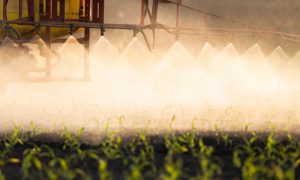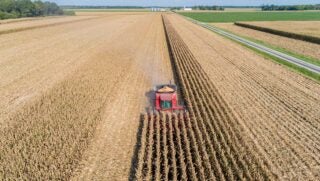U.S. Sen. Dr. Roger Marshall and U.S. Rep. Tracey Mann introduced the Emergency Relief From Duties Act aimed at creating emergency waivers for duties leveed on fertilizers by the U.S. International Trade Commission. This legislation from these lawmakers from Kansas creates a pathway to establish a waiver of Countervailing Duty or Anti-dumping Duty for a year if there is an emergency situation including natural disasters, war, epidemics, labor disputes, or major accidents.
“Fertilizer prices are at an all-time high yet additional tariffs continue to be placed on fertilizer, worsening the burden of historic production costs for America’s farmers,” said Senator Marshall. “While we don’t want foreign governments to distort trade with the United States, we must provide flexibility during emergency situations to ensure input costs don’t hinder our farmers’ ability to feed, fuel, and clothe the world.”
The bill comes as the U.S. International Trade Commission levied tariffs against imports of phosphate fertilizer at the behest of a U.S. fertilizer company. A petition for additional tariffs on urea ammonium nitrate is also being considered by ITC.
Corn growers have worked to educate members of Congress about the effects the tariffs are having on farmers and rural America. “Fertilizers and other inputs have been at an all-time high, and the war in Ukraine promises to drive up the price of products even more,” said Iowa farmer and NCGA President Chris Edgington. “Fertilizers have become increasingly hard to secure and pay for because of tariffs or the threat tariffs on imports. That’s why passage of this legislation would come as a welcome relief to farmers across the country.”

This bill would introduce a pathway to establish a waiver of countervailing duties or anti-dumping duties for a year if there is an emergency situation including natural disasters, war, epidemics, labor disputes, or major accidents.
“Farmers, ranchers, and agricultural producers provide America with essential products while operating in one of the most high-risk industries,” said Representative Mann. “That’s why it’s critical to provide them with opportunities for market remedies, especially in times of emergency and unprecedented volatility like we have seen over the last several years. If we don’t support farmers now, we’ll see the crumbling of America’s independent food security in the future.”
The current process for the United States International Trade Commission does not consider broader economic issues when issuing a CVD or AD. The ITC only asks if unfair foreign pricing and government subsidies distort the free flow of goods in a way that warrant a CVD or AD. Rather than change the way a CVD or AD is issued or adjust the process on the front end, this bill focuses on creating a new petition process after a CVD or AD has been issued.
There are two ways that emergency situations will allow agricultural groups to petition the ITC: If the emergency situation limits the domestic production of merchandise subject to the duty in a manner that causes economic hardship for users of that merchandise or merchandise made from merchandise subject to the duty; or if the emergency situation would result in a supply and demand disruption that substantially increases the price of merchandise subject to the duty or merchandise made from merchandise subject to the duty.


